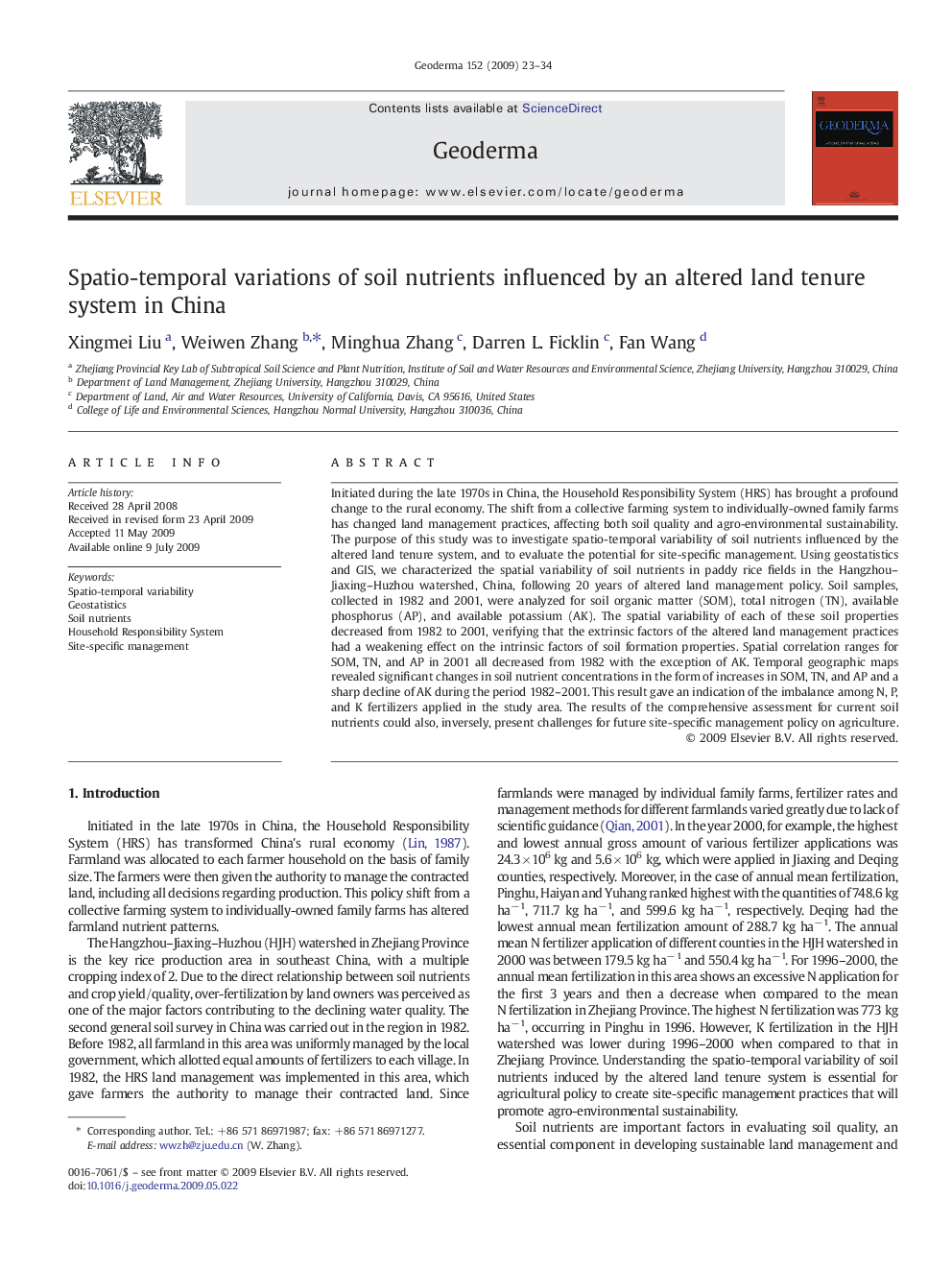| Article ID | Journal | Published Year | Pages | File Type |
|---|---|---|---|---|
| 4574606 | Geoderma | 2009 | 12 Pages |
Initiated during the late 1970s in China, the Household Responsibility System (HRS) has brought a profound change to the rural economy. The shift from a collective farming system to individually-owned family farms has changed land management practices, affecting both soil quality and agro-environmental sustainability. The purpose of this study was to investigate spatio-temporal variability of soil nutrients influenced by the altered land tenure system, and to evaluate the potential for site-specific management. Using geostatistics and GIS, we characterized the spatial variability of soil nutrients in paddy rice fields in the Hangzhou–Jiaxing–Huzhou watershed, China, following 20 years of altered land management policy. Soil samples, collected in 1982 and 2001, were analyzed for soil organic matter (SOM), total nitrogen (TN), available phosphorus (AP), and available potassium (AK). The spatial variability of each of these soil properties decreased from 1982 to 2001, verifying that the extrinsic factors of the altered land management practices had a weakening effect on the intrinsic factors of soil formation properties. Spatial correlation ranges for SOM, TN, and AP in 2001 all decreased from 1982 with the exception of AK. Temporal geographic maps revealed significant changes in soil nutrient concentrations in the form of increases in SOM, TN, and AP and a sharp decline of AK during the period 1982–2001. This result gave an indication of the imbalance among N, P, and K fertilizers applied in the study area. The results of the comprehensive assessment for current soil nutrients could also, inversely, present challenges for future site-specific management policy on agriculture.
